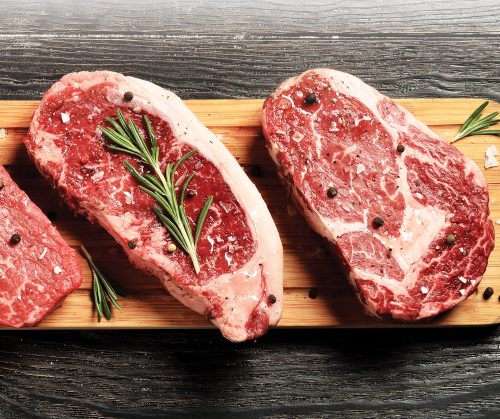
Q. I’ve heard the risk of bowel cancer from eating red meat has been downgraded. Does this mean I can eat red meat as often as I like now?
A. Healthy Food Guide senior nutritionist Rose Carr responds:
Red meat is a great source of many nutrients, including iron, which is especially important for women until they reach menopause. But we still need to ensure we don’t overdo how much we have.
The World Cancer Research Fund updated its analysis of research from around the world, in September 2017. While the evidence for a link between eating red meat and colorectal cancer is still strong, it has been changed from ‘convincing’ (in the 2010 report) to ‘probable’. So red meat is not entirely off the hook. And for processed meat, the evidence for the link is still rated as ‘convincing’.
A study published in the Annals of Internal Medicine in October 2019 added some confusion to the issue. A panel of 14 members, including 3 community members, from 7 countries considered four systematic reviews addressing the health effects associated with red meat and processed meat consumption, plus one systematic review addressing people’s health-related values and preferences around meat consumption.
The panel, which does not represent any national or international organisation or government, suggested that adults continue current red meat and processed meat consumption, noting both were weak recommendations with a low-certainty of evidence.
Professor of Medicine and Human Nutrition Jim Mann highlights the issues with this report, stating “In my opinion the ‘weak recommendations’ based on ‘low certainty’ evidence that adults ‘continue current consumption of unprocessed red meat and processed meat’ are potentially unhelpful and could be misleading.
“[The panel’s] recommendations for red meat intake by individuals is not appreciably different from that made by other organisations (eg, World Cancer Research Fund (WCRF)) given that current consumption in many countries is around three to four portions per week. It should be noted that recommendations to limit intake of red meat (in terms of effects on human health) are principally based on the relationship between red meat and colorectal cancer.
The important thing to remember is the links between processed and red meats and colorectal cancer are related to the amounts we eat, so the more we eat the greater risk. For processed meat, the amounts showing a higher risk are small, so the recommendation is not to eat it, and if you do, to have very little (say less than 50g) and only occasionally.
For red meat, it’s suggested we have no more than 500g (cooked) each week. That’s around 700-750g uncooked, and this recommendation hasn’t changed. To put that in context, most of the recipes in Healthy Food Guide have 125-150g meat per person, so to eat 700-750g red meat, you would be having it 4-6 times in a week.
Remember, too, there are other things we can do to reduce our risk of developing colorectal cancer, such as not smoking, being active and eating a high-fibre diet.
Have a question? Send yours to [email protected]
- Red meat refers to beef, pork and lamb
- Processed meat refers to any meat preserved by smoking, curing, salting or the addition of chemical preservatives.
Article sources and references
- World Cancer Research Fund international/American Institute for Cancer Research. 2017. Continuous Update Project Report: Diet, Nutrition, Physical Activity, Weight and Colorectal Cancer, wcrf.org/colorectal-cancer-2017https://www.wcrf.org/sites/default/files/Colorectal-Cancer-2017-Report.pdf
www.healthyfood.com










